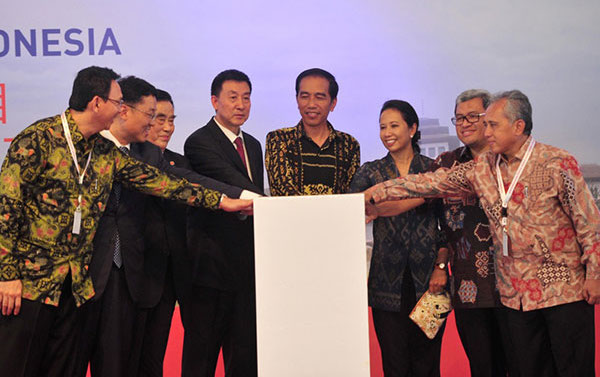Saying key documents have not been submitted, the Indonesian government has halted work on China’s hard-won Jakarta-Bandung high-speed rail project just five days after the ground-breaking ceremony.
Transport minister Ignasius Jonan confirmed on 26 January that he has withheld the building permit as the company developing the railway, the Chinese-Indonesian joint venture PT Kereta Cepat Indonesia China (KCIC), had not submitted the required paperwork.
Nor has the ministry issued the concession agreement since it is still negotiating a variety of sensitive issues with KCIC.
Indonesian President Joko Widodo attended the ground-breaking on 21 January, marking the official launch of the $5bn-plus project that was finally awarded to China over rival Japan after a chaotic process in which, at one point, Indonesia even resolved to scrap the scheme in favour of a slower, cheaper line.
We want to ensure that if the project’s development fails in the middle of construction, the government will not be burdened by it– Ignasius Jonan, Indonesian transport minister
Five days later, however, the government slammed on the brakes.
“We are very strict [on this] because this is the first time we’ve conducted this kind of project, and we are not done with the evaluation,” transport minister Ignasius Jonan told a hearing at Indonesia’s House of Representatives, reports Jakarta Post.
And today another possible barrier to the historic scheme was thrown up by lawmakers who urged the government to review a decision to hand over 49 hectares of Defence Ministry land to build a station for the new railway, which is planned to run 150km from Jakarta to Bandung.
Lawmakers from the country’s House of Representatives Commission I, which oversees defence and foreign affairs, said such a handover could pose a threat to the military’s strategic assets, the Jakarta Post reports today.
As well the problem of missing documents, Ignasius Jonan also said his ministry was still negotiating basic terms of the concession agreement with KCIC, which deal with the risk of default and the duration of the concession.
“We want to ensure that if the project’s development fails in the middle of construction, the government will not be burdened by it,” he said.

Indonesia’s president Joko Widodo, centre, during the ground-breaking ceremony on 21 January 2016 (Xinhua/English.gov.cn)
According to Jonan, the ministry was also still awaiting a hydrology study, among other documents, required for the issuance of the building permit.
Previously, the ministry’s director general of railways, Hermanto Dwiatmoko, said the ministry had not even issued the building permit for the first 5km of the railway, reported the Post.
“We still haven’t received the required documents. There are even a lot of documents in Chinese. How can we even evaluate them?” he said, adding that the railway infrastructure operational permit had also to be issued first before the building permit could be issued.
The railway, connecting Jakarta and Bandung, West Java, is expected to run trains as fast as 350km/h. Trains were scheduled to be running in early 2019.
The investment required has been estimated at $5.5bn, 75% of which is being covered by loans from the China Development Bank.
Meanwhile, KCIC has been unable to acquire the rail facilities operational permit, because of a shortfall in the capital requirement, with Rp 1.1 trillion ($79.2 million) recorded of the required Rp 1.25 trillion. – See more here.
Photograph: A Chinese high-speed train at Shanghai Honhqiao Station. Indonesia chose the Chinese rail technology offering over Japan’s for its first high-speed railway (Jucember/Wikimedia Commons)










